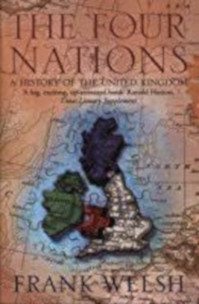The Four Nations
A History of the United Kingdom
Frank Welsh
The first single-volume history of the mutual relations between the constituent parts of the UK (England, Scotland, Wales, Northern Ireland), made topical by the recent devolution developments in Scotland and Wales.
By comparison with the United States, the history of the United Kingdom as an undivided entity has been quite short. This book describes the history of each constituent part, their interaction, and the effect of external events. As soon as British history is seen as an integral part of world (especially European) history, the perspective alters drastically. Until 1803 France was optimistically assumed to be part of the realm. Less than a century elapsed between 1829, when the grant of a very restricted franchise to Catholics made the inclusion of Ireland more than a political fiction, to 1922, when the Irish Free State emerged. Scotland, with England the main constituent of the UK since 1707, has retained its own legal system, administration and established church (the Queen changes her religion each time she passes Berwick). Wales retains a distinctive culture and language, albeit one on an expensive life-support machine.
First published by HarperCollins (UK) in 2013

Reviews
‘The Four Nations is a hugely enjoyable read, full of vigor and liveliness as well as provocative commentary. It informs and instructs in an accessible way that none of its rivals can match.’
John Morrill, Cambridge University
‘A compelling and sometimes controversial account of how four kingdoms–England, Ireland, Scotland, and Wales—became one. . . . [Welsh] constantly challenges received opinion and urban myths.’
Alan Taylor, Glasgow Herald
‘An inside knowledge of how business and administration works, and a keen sense of the realities of bargaining and marketing that underpinned successful policies in the twentieth century. . . . A big, exciting, opinionated book. . . . The book does . . . handle the history of Wales with insight, sympathy and almost complete accuracy. . . . It shows, very well, why it was that Ireland could not be assimilated into a United Kingdom, why Scotland and Wales could, and what the present strains and strengths of that kingdom are.’
Ronald Hutton, Times Literary Supplement